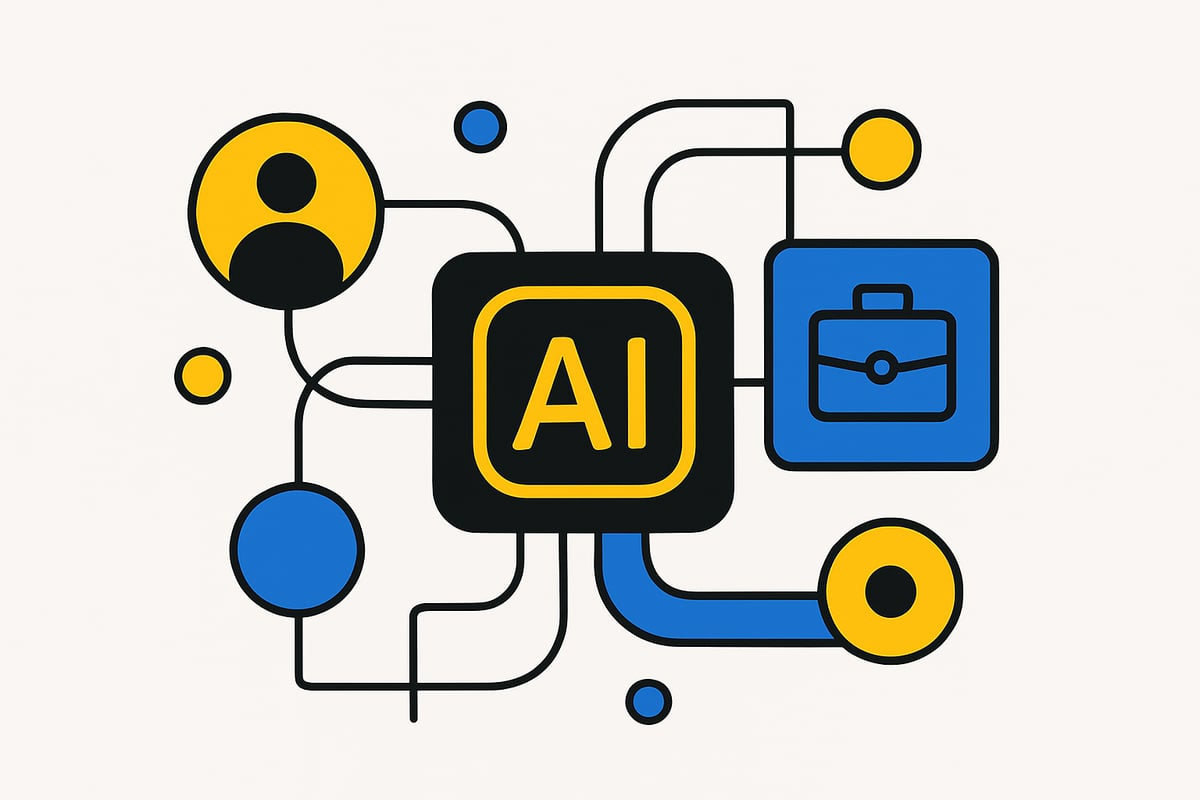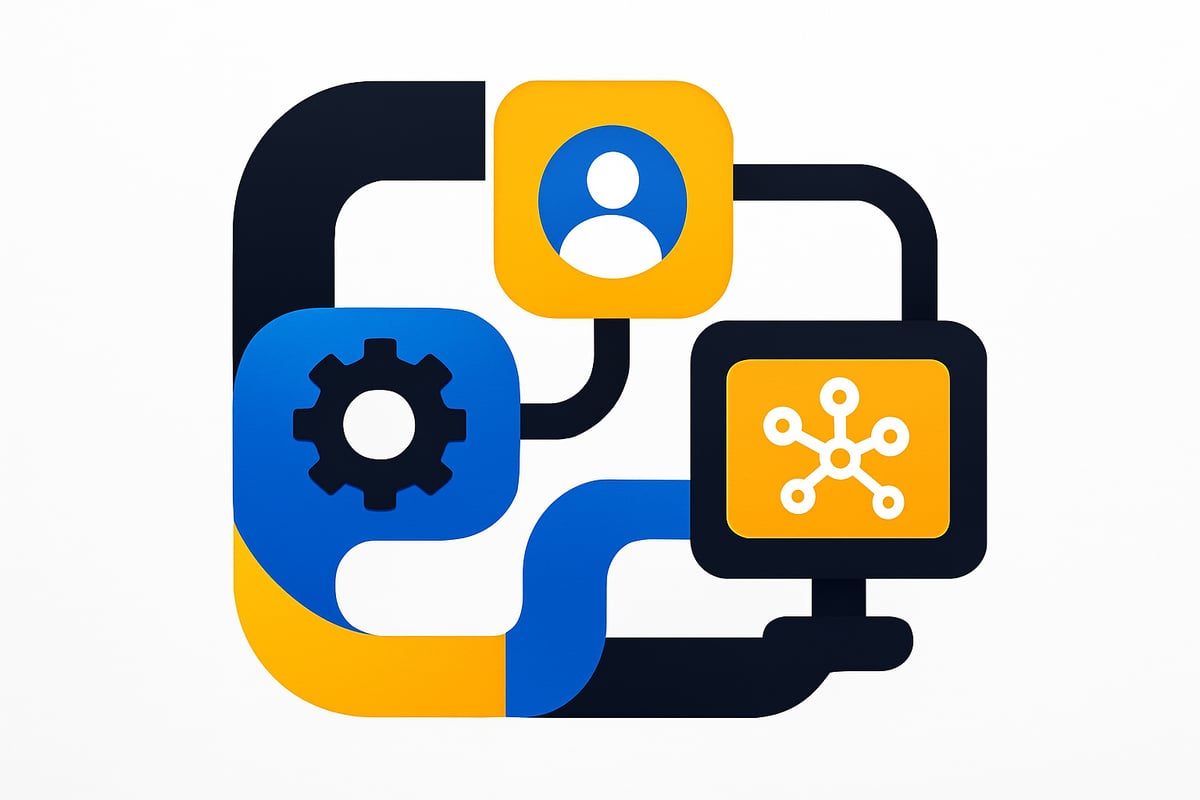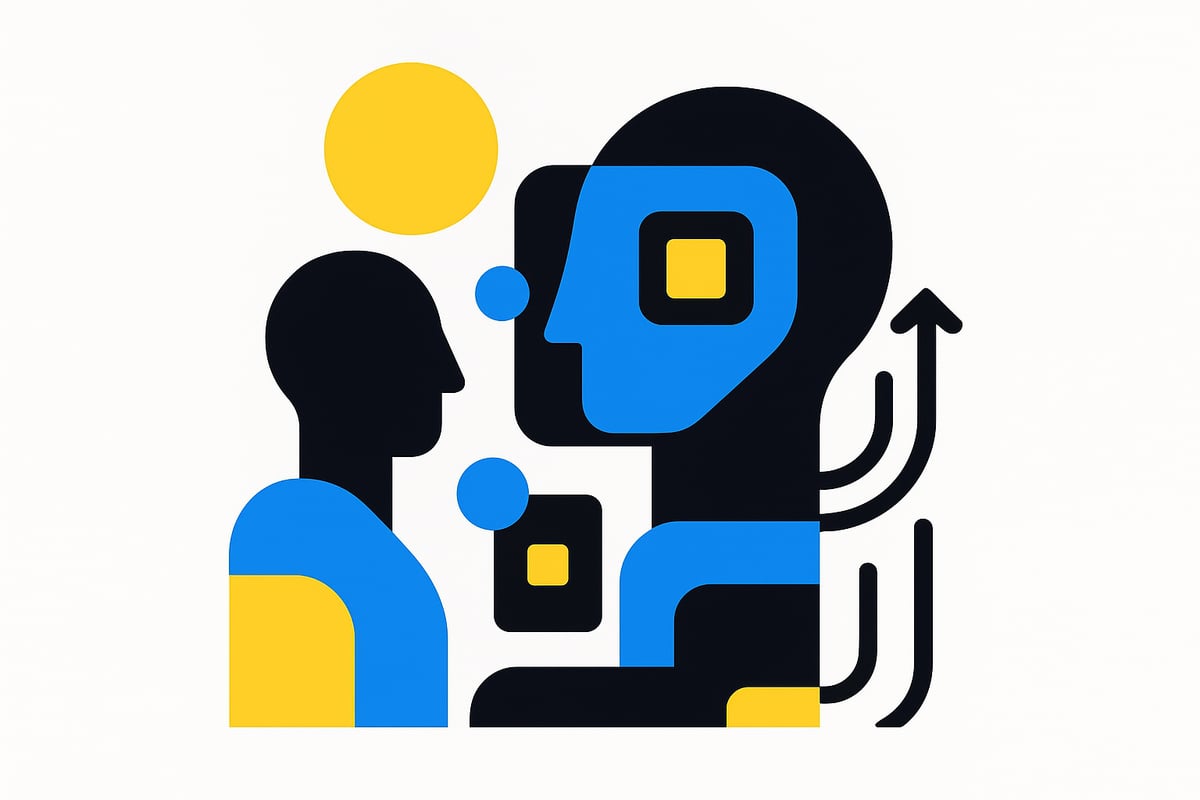October 16, 2025
7 Game-Changing Ways to Use AI for Recruiting in 2025

The world of hiring is on the brink of a revolution, with ai for recruiting set to transform talent acquisition faster than ever imagined. In just a few short years, intelligent algorithms and automation are rewriting the rules of recruitment, making traditional approaches obsolete.
This article will reveal seven game-changing strategies that will shape how organizations attract, assess, and hire top talent in 2025. Whether you are a recruiter or HR leader, discover how these breakthrough innovations will empower you to hire smarter, faster, and more fairly than ever before.
The AI Revolution in Recruitment: 2025 Landscape
Artificial intelligence has triggered a seismic shift in the world of talent acquisition. In 2025, the adoption of ai for recruiting is at an all-time high, with global HR tech spending projected to surpass $35 billion. According to recent surveys, over 80 percent of Fortune 500 companies now leverage AI-powered applicant tracking systems or automated screening tools, marking a dramatic increase from just a few years ago.
AI for recruiting is no longer confined to resume parsing or basic chatbots. Today’s AI solutions orchestrate every phase of the talent acquisition journey, from intelligent sourcing and candidate matching to automated assessments and seamless onboarding. Candidates expect a fast, transparent, and personalized process, while hiring teams demand efficiency and data-backed insights. This shift has redefined what it means to compete for top talent in a digital-first world.
Organizations are moving away from manual screening and traditional HR software, adopting intelligent platforms that harness machine learning and predictive analytics. The reliance on data-driven decision-making has become central to recruitment strategy. AI for recruiting empowers teams to analyze volumes of candidate data, spot trends, and make fairer, more objective selections than ever before.
Leading enterprises have reported measurable gains from embracing AI for recruiting, such as a 40 percent reduction in time-to-hire and significant boosts in workforce diversity. These benefits are well-documented, as explored in Benefits of AI in Recruitment. At the same time, the rise of AI brings new challenges, like ensuring algorithmic fairness, mitigating bias, and fostering effective human-AI collaboration. Ethical oversight and transparency are now critical considerations for every organization.
As we look ahead, the landscape of ai for recruiting will continue to evolve. With rapid innovation, organizations must balance automation with empathy, leveraging AI to drive smarter, faster, and fairer decisions while maintaining a human touch throughout the hiring experience.

7 Game-Changing Ways to Use AI for Recruiting in 2025
The future of talent acquisition is being rewritten by ai for recruiting. As organizations face mounting pressure to attract, select, and retain top talent efficiently, artificial intelligence is stepping up to transform every stage of the hiring process. In this section, we reveal seven groundbreaking applications of ai for recruiting that are delivering measurable results, solving critical pain points, and setting new benchmarks for hiring excellence.
Each approach highlighted here is more than a technological upgrade—it’s a strategic advantage. Discover how leaders in HR are using ai for recruiting to screen smarter, source wider, engage deeper, predict better, build fairer teams, personalize at scale, and unlock powerful insights. Whether you’re a recruiter, HR leader, or business executive, these innovations can empower your team to hire with greater speed, accuracy, and equity.

1. Intelligent Resume Screening and Candidate Shortlisting
Imagine a world where recruiters no longer spend hours sifting through stacks of resumes. With ai for recruiting, this vision is a reality. Modern AI-powered platforms can instantly analyze thousands of CVs, ranking candidates based on customizable job criteria. Deep learning models evaluate skills, experience, and qualifications against specific role requirements, ensuring that only the most relevant candidates rise to the top.
The benefits are dramatic. Organizations report screening processes up to 92 percent faster and achieving match accuracy as high as 97 percent. By automating the initial review, ai for recruiting not only saves valuable time but also reduces unconscious bias, as algorithms follow consistent, data-driven evaluation standards.
Integration is seamless. Many systems work alongside existing ATS platforms, creating a unified workflow for recruiters. Leading companies have seen a significant boost in quality of hire and a noticeable drop in manual errors by relying on these intelligent systems.
For a deeper dive into the technology behind automated resume screening, visit Automated Resume Screening Software. These advances mark a pivotal shift, making ai for recruiting indispensable in today’s fast-paced hiring environment.
2. Automated Sourcing and Talent Pool Expansion
Finding the right talent is more complex than ever, but ai for recruiting is redefining how companies build and expand their talent pools. AI-driven sourcing tools scan an array of channels, including job boards, social media, and proprietary databases, to identify both active and passive candidates.
What sets ai for recruiting apart is its ability to uncover hidden talent. Algorithms analyze online footprints, work histories, and even engagement patterns to predict candidate fit. These insights help recruiters create rich talent maps, broadening the reach far beyond traditional sourcing methods.
The results speak volumes. Companies leveraging ai for recruiting have expanded their talent pools by three times or more, with sourcing efficiency increasing by over 50 percent. Improved diversity outcomes are also being reported, as AI reduces reliance on limited networks and surfaces candidates from varied backgrounds.
Personalization is key. AI tools tailor outreach messages to individual interests and career paths, yielding higher response rates and stronger engagement. For recruiters, this means less time searching and more time building relationships with high-potential candidates.
3. AI-Powered Candidate Engagement and Communication
In a competitive job market, candidate experience can make or break your hiring success. Ai for recruiting is transforming how organizations engage job seekers, providing real-time, personalized communication at every step.
Conversational AI, such as chatbots and virtual assistants, now handles candidate queries, schedules interviews, and guides applicants through the process around the clock. This 24/7 support means candidates receive instant answers to their questions, reducing drop-off rates and boosting satisfaction.
Recruiters benefit from increased productivity, as repetitive tasks are offloaded to AI. High-volume hiring becomes manageable, with chatbots efficiently managing applicant flow and coordinating logistics. Candidates appreciate the responsive, streamlined process, which enhances the employer brand and sets a positive tone from the first interaction.
Real-world examples abound. Organizations using AI chatbots have seen significant improvements in candidate satisfaction scores and a marked reduction in application abandonment. Ai for recruiting ensures that every candidate feels valued, no matter how large the applicant pool.
4. Predictive Analytics for Hiring Success
Hiring the right person is both an art and a science. Ai for recruiting brings advanced analytics into the equation, enabling organizations to forecast candidate success, turnover risk, and even cultural fit.
By analyzing historical hiring data, AI builds predictive models that highlight which candidates are likely to excel and stay with the company long-term. These insights empower recruiters to make data-backed decisions, reducing early attrition and improving overall team performance.
Predictive analytics also help optimize the recruitment funnel. Companies can identify which sourcing channels yield the best long-term hires and adjust their strategies accordingly. Ai for recruiting transforms gut feelings into measurable metrics, guiding smarter investments in talent acquisition.
Leading firms use predictive analytics to refine job descriptions, interview questions, and onboarding processes. The end result is a hiring strategy that is both efficient and aligned with organizational goals.
5. Bias Reduction and Diversity Enhancement
One of the most promising aspects of ai for recruiting is its potential to create fairer, more inclusive hiring processes. AI systems can be engineered to minimize unconscious bias by anonymizing candidate data and applying standardized scoring methods.
Continuous model training ensures that the algorithms evolve, learning to identify and counteract patterns of bias. This leads to more equitable outcomes, with organizations reporting notable improvements in diversity metrics and better compliance with equal opportunity regulations.
Case studies demonstrate that ai for recruiting can significantly increase the representation of underrepresented groups in candidate shortlists. However, it is crucial to pair AI with human oversight. Ethical development and transparent audit processes help maintain trust and accountability.
The journey toward unbiased hiring is ongoing, but AI provides a powerful toolkit for organizations committed to building diverse, high-performing teams.
6. Personalized Candidate Experience at Scale
Candidates today expect tailored experiences, and ai for recruiting delivers personalization at scale. AI customizes job recommendations, application workflows, and communication based on each candidate’s skills, interests, and behavior.
Natural language processing and behavioral analytics enable AI systems to understand what motivates candidates, allowing recruiters to craft messages and offers that resonate. This individualization leads to higher engagement, increased satisfaction, and better conversion rates.
Leading employers are leveraging ai for recruiting to offer a “white glove” experience to every applicant, regardless of hiring volume. From personalized interview prep to timely status updates, AI ensures candidates feel seen and valued throughout their journey.
The impact is clear: organizations report stronger employer brand reputations and improved acceptance rates. Personalized experiences are no longer a luxury—they are a necessity in the battle for top talent.
7. Advanced Recruitment Analytics and Reporting
Data is the new competitive edge, and ai for recruiting puts powerful analytics in the hands of HR leaders. AI aggregates data from multiple sources, providing real-time dashboards and automated reports on sourcing channels, pipeline health, and process bottlenecks.
These actionable insights help organizations optimize recruitment spend, reduce time-to-hire, and improve quality-of-hire. AI-driven talent intelligence enables decision-makers to spot trends, forecast hiring needs, and measure the impact of every recruitment initiative.
Industry benchmarks show that companies using advanced analytics outperform peers in key hiring metrics. Ai for recruiting transforms raw data into strategic guidance, ensuring that recruitment operations are efficient, agile, and aligned with business objectives.
Best practices include setting clear KPIs, integrating analytics with existing platforms, and fostering a culture of continuous improvement. With AI-powered reporting, organizations can make smarter, faster, and more confident hiring decisions.
Integrating AI Recruiting Tools: Best Practices and Considerations
Successfully implementing ai for recruiting requires a strategic, stepwise approach that balances innovation with operational readiness. Begin by assessing your organization's current talent acquisition workflows and identifying pain points that ai for recruiting can address. A solid foundation starts with high-quality, well-structured data, as AI algorithms rely on accurate information to deliver reliable results. Evaluate your existing platforms to determine compatibility with new AI tools, ensuring integration is seamless and data flows securely between systems.
Selecting the most suitable ai for recruiting solutions involves more than just reviewing features. Prioritize platforms that align with your unique hiring objectives, scale with business growth, and meet compliance requirements. It's essential to involve key stakeholders from HR, IT, and legal early in the process to vet vendors, validate security protocols, and ensure regulatory alignment. For actionable guidance on this process, explore How to Use AI in Recruiting, which provides practical steps for evaluation and adoption.
Change management is critical when introducing ai for recruiting. Equip recruiters and hiring managers with thorough training on new tools and processes. Offer hands-on workshops, clear documentation, and ongoing support to foster confidence and minimize resistance. Transparent communication about the benefits and limitations of AI helps manage expectations and encourages collaboration between humans and technology. Encourage feedback from users to refine workflows and address concerns promptly.
To maximize the impact of ai for recruiting, establish clear metrics to measure return on investment, such as reduced time-to-hire, improved candidate quality, and enhanced diversity outcomes. Regularly audit AI-driven processes to ensure ethical standards are upheld and bias is minimized. Avoid over-reliance on automation by maintaining a human-centric approach, where recruiters use AI insights to inform, not replace, their judgment. Continuous monitoring and periodic model retraining will keep your recruitment strategy agile and effective.

The Future of AI in Recruiting: Trends to Watch
The next chapter of ai for recruiting will be defined by bold innovation and shifting expectations. In 2025, recruiters will see technology reshape every touchpoint, unlocking new levels of efficiency and fairness. Generative AI is rapidly transforming how organizations craft job descriptions, making them more inclusive and attractive by analyzing real-time market language trends. Video interview analysis powered by advanced algorithms is set to become mainstream, offering deeper insights into candidate communication and soft skills while minimizing human bias.
Another significant trend is the rise of fully integrated, end-to-end ai for recruiting platforms. These solutions streamline sourcing, assessment, and onboarding in a single ecosystem, powered by continuous data flows and automation. As recruiters demand more transparency, explainable AI is gaining traction, ensuring that every decision made by algorithms can be traced and justified. This shift builds trust and supports compliance, especially as AI becomes central to hiring decisions.
Regulatory changes are on the horizon, focusing on data privacy and ethical accountability. New standards will require organizations to audit their ai for recruiting tools regularly and provide clear documentation of their decision-making processes. Candidates are also demanding greater control over their data and expect personalized, respectful experiences. As automation grows, the need for upskilling and reskilling is urgent, with industries already adapting to these workforce changes. For a global perspective on how AI is impacting the job market and driving reskilling efforts, see AI's Impact on the US Job Market.
Looking ahead, recruiters who stay agile and invest in continuous learning will lead the way. Embracing new ai for recruiting tools and understanding their ethical and regulatory implications will be critical. By leveraging explainable AI and focusing on human-AI collaboration, organizations can future-proof their hiring and create a more diverse, equitable workforce.

